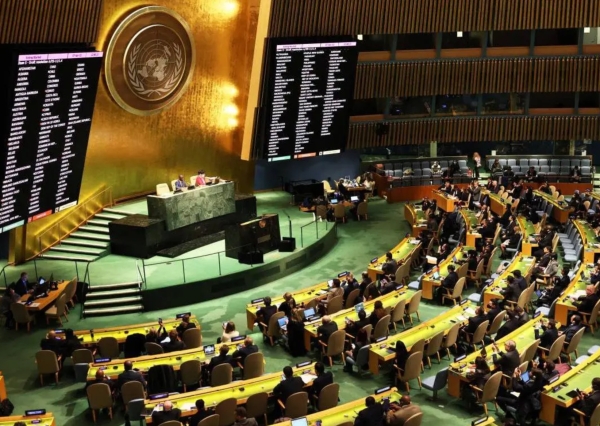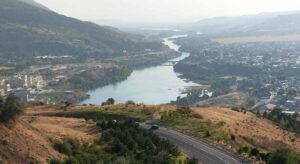The UN General Assembly has unanimously adopted a resolution led by Uzbekistan on establishing sustainable forests in degraded and dry areas as a solution to environmental problems.

The resolution is closely aligned with Uzbekistan’s nationwide project, Yashil Makon (Green Nation), a greening initiative spearheaded by the president of Uzbekistan. This project focuses on combating climate change and land degradation through large-scale reforestation and tree-planting efforts across the republic.
The core proposals of this resolution, initially presented by Uzbekistan’s president at the 78th UN General Assembly and the 28th UN Climate Conference, focus on transforming the Aral Sea region into a “green area” to combat desertification and reverse the environmental damage caused by the sea’s shrinkage.
“At the initiative of our head of state, tremendous efforts are being made to address environmental issues, particularly in turning the Aral Sea region into a green area and preventing desertification. It is crucial for us that these proposals are recognized at the international level, allowing us to attract scientists, collaborate with major funds, and engage with international organizations,” Aziz Abdukhakimov, Uzbekistan’s Minister of Environmental Protection and Climate Change, highlighted the importance of this resolution.
The resolution garnered support from over 100 UN member states, including all Central Asian countries, as well as Azerbaijan, Austria, Belgium, Bahrain, Hungary, Germany, Italy, Jordan, Indonesia, Qatar, China, Saudi Arabia, Latvia, Mongolia, Morocco, Oman, UAE, Pakistan, Portugal, Russia, Republic of Korea, Türkiye, France, and many others from diverse regions of the world.
The document comprehensively outlines the economic, social, and ecological benefits of sustainable forest management and tree planting. It highlights the contributions of these efforts to enhancing biodiversity, mitigating the effects of climate change and air pollution, and achieving the Sustainable Development Goals (SDGs), particularly in the areas of poverty eradication and food security.




